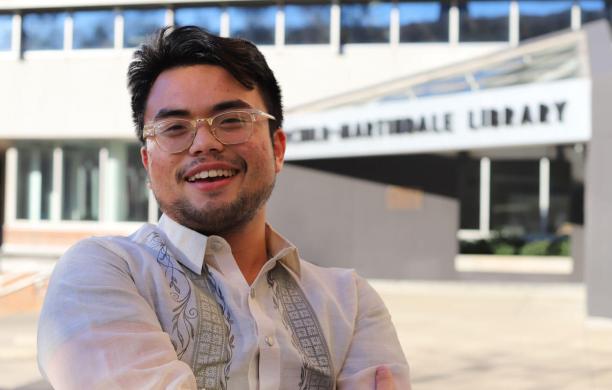For 37 years, Mary Fronheiser has worked in financial aid. That wasn’t the plan, but the impact she’s had is clear as she guides students through a process that sent her college plans in a very different direction.
As a senior in high school, Fronheiser was top-notch, a member of the National Honor Society, student council, and debate club, and front-page editor for the school newspaper.
She applied to Moravian University and still has the acceptance letter, but when the bill came in the mail, she realized that her comfortable life at the family’s dairy farm wouldn’t enable her to afford the college experience she dreamed about.
Her plans quickly shifted as she decided to attend Lehigh Carbon Community College (LCCC). Her meager wages from working on the family farm covered the first bill.
But the moment that strikes her profoundly now, as she looks back, occurred in the hallway at school. A teacher pulled her from class and asked why her college plans changed. Rather than challenge Fronheiser’s belief that she could afford a private liberal arts school through financial aid, grants, and loans, the teacher heard the explanation and accepted it.
“No one stepped in,” she says. “Not one single person. And I didn’t know enough to ask.”
That has motivated her to help others.
LCCC proved a bit too easy for her, and she started to slack off but still did well. Worse, she didn’t feel connected to the people there. At the end of her first year, she transferred to Allentown Business School (ABS), where a person in financial aid showed her exactly what was needed to afford her degree program.
Twelve months later, she graduated and was hired to work in their financial aid office. Soon she was attending night classes to earn a bachelor of arts in accounting. She tackled the remaining classes to earn that degree in 10 months, taking two new classes every six weeks.
She continued her job in financial aid, working at ABS, Cedar Crest College, McCann School of Business and Technology, and now Lehigh.
“There are so many students out there who are first generation and need help,” she says. “But they need someone who can show them how to do it and tell them they can do it.”
“They have to educate themselves about what’s out there and ask questions and then find a person who will help along the way,” she says. “I have found so much reward in being the person I needed in that hallway so many years ago.”
test
Discover More
